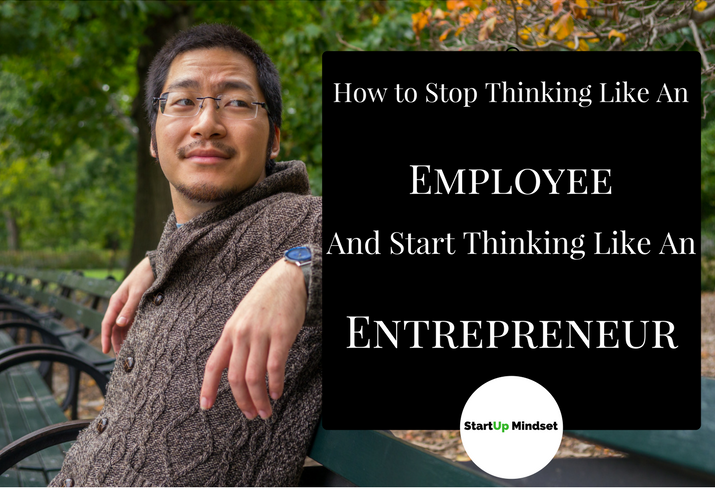When it comes to work, career, and money, everybody is searching for the best solutions to the most basic problems of first maintaining the work, then improving the money. We are all familiar with retired sages who enjoyed their jobs and have passed down their wisdom from generation to generation. At this point, there are three excellent principles of becoming an invaluable employee that just about everybody knows:
-
Do the job that nobody else will do.
-
Do what your superior tells you, and don’t rebel.
-
The more money you make for your boss and company, the more money will be passed back to you.
I am a strong proponent of these sound practices, which will surely lead to the survival, maintenance and development of one’s career, and the reason for that is the one root element among them all: “They serve the boss.” All the great work of a great employee comes down to recognizing the boss is a source of innovation, planning, work, and income.
Ultimately, the intrinsic purpose of all employees is to make the boss happy, but what does an employee need to do when he makes himself the boss? This is a seemingly benign question, but my transition in mindset from employee to entrepreneur was a little bit mind-blowing, requiring a total transformation of purpose and perspective.
The first thing to understand is an employee is staff. Staff has another meaning though; a staff is a cane that helps support an individual. The obvious parallel is that the staff of a company and a literal cane are both tools that support a single entity, be it a company or a person. A staff can be replaced. With practice holding oneself up, a staff may be entirely cast away, since even the best, most effective, most expensive, best-looking staff will always play a purely supporting role.
The entrepreneur must learn to rely on himself. His role is the entirety, and any thoughts that are designed to show support and not carry all the weight of the boss (himself) and the business (his own), need to be cast away or reassigned to a support. There are no difficult jobs, for example, because the entrepreneur’s job is all encompassing. I learned this the way many managers learn the make-up and value of their staff, when multiple employees failed to show up to work. All the operations became my responsibility all at once, and at that moment, I realized they always were.
Accepting I am the sole person responsible for everything wasn’t enough to break me from my pattern of employee thinking. The next impulse was to become the ultimate staff for myself by myself, which makes no sense. Delegation and management are every bit the same job of an entrepreneur as wiping down the countertops. I needed to make an “executive decision.” As the master of doing the jobs nobody else will do, a common employee executive decision will determine whether, for example, the garbage must be stomped down or taken out.
An entrepreneur’s executive decision is much more significant; it is a command that directs all workflow toward a common direction. If it is a poor direction, then a business (or an endeavor) can collapse. When I had to make an executive decision in my first year of business, I passed the decision onto an individual who called himself a consultant. He made the decision to gamble thousands of dollars, and we lost all of it.
With increasing difficulties due to allowing myself to be placed in a subordinate position to a boss, my mind rushed to the employee principles for guidance, and I worked hard, long hours, trying to pick up slack and keep busy greasing the wheels, painting the walls and running in circles.
Without direction, though, the work of the staff is fruitless. Without leadership, a staff simply tips over and clatters onto the ground. And then where is the boss? Where is the direction? Where is the paycheck? It was all in me, and I needed to respect that because nothing was forthcoming, which meant that, blame who I might for whoever’s poor decisions, the whole job was still mine to perform.
An entrepreneur is alone, without genuine help. For him, there is either success or failure, either praise or blame. My realization of the nature of entrepreneurial risk was emotional. The shift in perspective needed to be complete, and for me, that meant ripping out everything – all the guts of the business – like cleaning a messy garage, and then putting it back together by myself.
As an entrepreneur, I possessed total ownership, which meant that the necessary status was to be the total opposite of an employee and own total control. The business, though made up of many parts that worked independently of my direct input, was still a direct extension of my own body. A metaphor? Being an entrepreneur is like driving a car.
Once one becomes an entrepreneur, driving his business on the unforgiving highway amid so many others, with the mind of an employee tossed out the window, a new set of principles must emerge, and there are gurus with ancient wisdom for that also; however, I put together my own, solely as a contrast to the other part of my brain, which I use when I am not working for myself:
-
The entire job must be done, and you are responsible for its completion or incompletion, regardless of all circumstances.
-
There is no superior to make commands, and if you do not initiate action yourself, you will do absolutely nothing.
-
“Responsibility” is a code word for profit and loss.
Become the job. Become the business. Recognize that any lapse of control, effort or reason will result in a failure to make money, just as it would be during a debilitating medical episode, which was almost the cause of my entrepreneurial demise. Then propose your next innovative concept.









